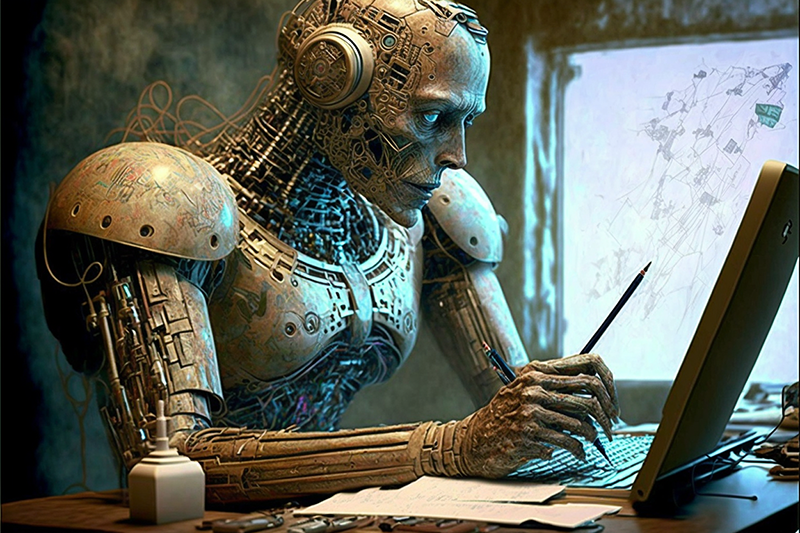Artificial Intelligence (AI) is reshaping the writing landscape, offering writers new tools for creativity, productivity, and communication. As AI continues to evolve, it’s important for writers to understand how this technology can support their craft—and where it might challenge traditional notions of authorship and originality.
How Is AI Impacting Writing?
AI in writing uses natural language processing (NLP), machine learning, and large language models to assist or generate text. From content suggestions to full-length articles, AI is transforming how writers create, edit, and publish their work.
Key Developments in AI and Writing
Content Generation
AI tools like ChatGPT, Jasper, and Sudowrite can generate blog posts, social media captions, stories, and more. These platforms help writers brainstorm ideas, overcome writer’s block, and produce drafts faster than ever before.
Editing and Enhancement
Grammar checkers and style editors powered by AI—such as Grammarly or Hemingway—go beyond basic proofreading. They offer tone adjustments, clarity suggestions, and structural recommendations that improve the overall quality of writing.
Personalized Writing Assistance
AI can adapt to a writer’s style and tone, enabling more personalized content creation. For marketers, this means AI can tailor content for different audiences, boosting engagement and consistency across platforms.
Translation and Localization
AI-driven translation tools help writers reach global audiences more easily. With enhanced language models, translations are becoming more accurate, nuanced, and culturally appropriate.
Storytelling and Co-Creation
Creative writers are using AI as a co-author to explore plot twists, character development, or poetry generation. These tools inspire fresh perspectives, helping writers experiment with new genres and formats.
Challenges and Considerations
While AI enhances productivity, it raises several concerns for writers:
- Originality and Authenticity: Content generated by AI may lack the unique voice and emotional depth of human writing. Writers must balance automation with personal expression.
- Copyright and Ownership: Questions persist around who owns AI-generated content—the writer, the AI provider, or both?
- Over-Reliance on Tools: Dependence on AI may lead to homogenized writing or reduced critical thinking. Writers should use AI as a tool, not a crutch.
- Job Displacement: As AI takes on more writing tasks, some fear it could replace human writers. However, most experts see AI as a collaborator rather than a replacement.
What Lies Ahead?
The future of AI in writing points toward deeper integration, smarter assistance, and greater accessibility. Writers may soon benefit from:
- Real-time research assistants that summarize sources instantly
- Intelligent brainstorming partners that generate and refine ideas
- Voice-to-text AI systems that transcribe and enhance spoken narratives
- Emotionally intelligent models that adapt tone based on reader feedback
Conclusion
AI is not here to replace writers—it’s here to empower them. By embracing AI as a creative partner, writers can unlock new efficiencies, discover fresh inspiration, and redefine their craft for the digital age. The key is to use AI thoughtfully, combining the speed and scale of technology with the heart and soul of human storytelling.







Leave feedback about this